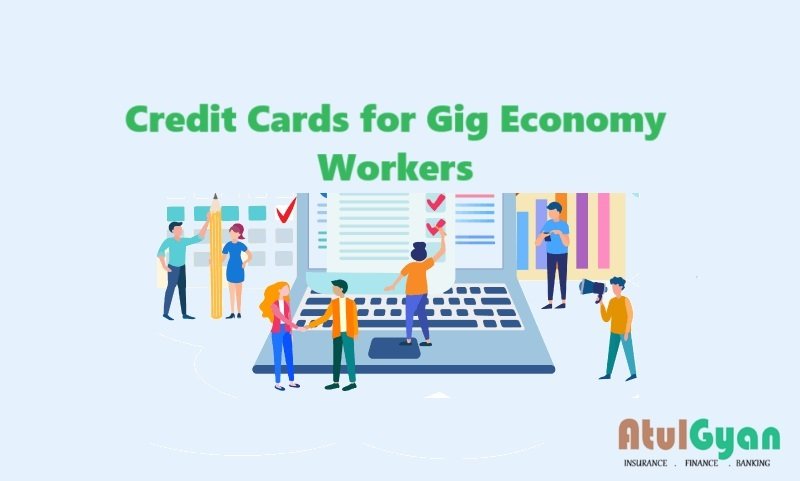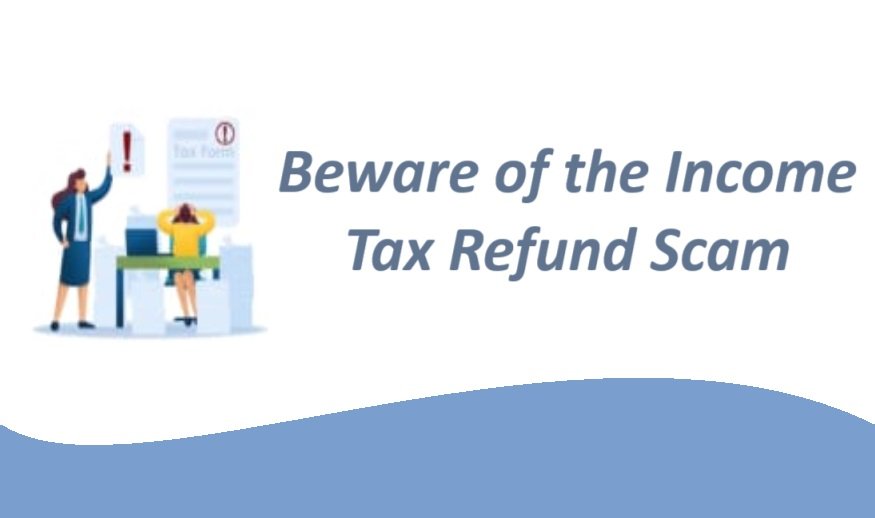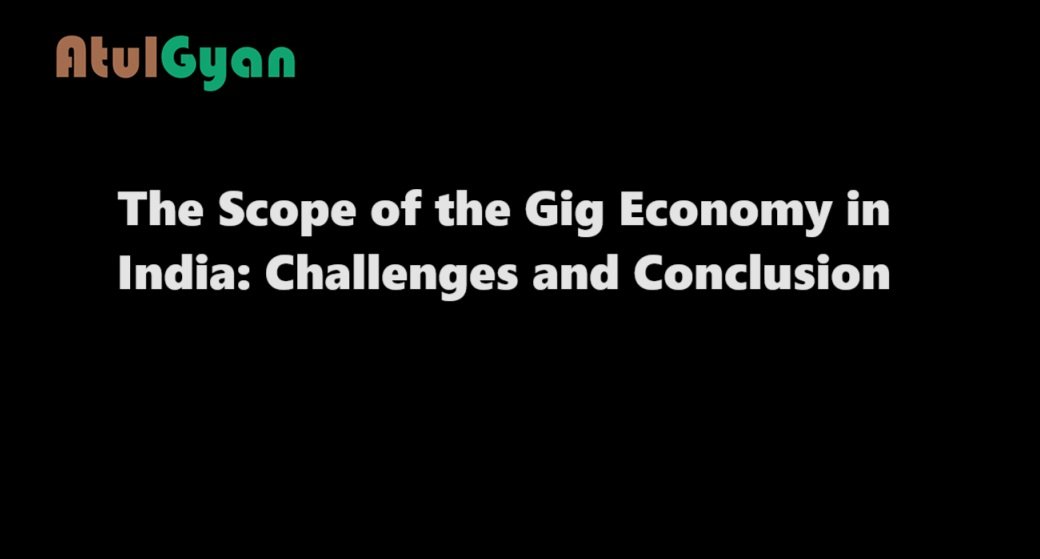Credit Cards for Gig Economy Workers
Introduction
The gig economy has become a significant part of the modern workforce, with more and more individuals opting for flexible work arrangements. As the gig economy continues to grow, it is important to address the unique financial needs of gig workers, including access to credit. In this blog post, we will explore the gig economy, the importance of credit access for gig workers, and the purpose of tailoring credit card products specifically for them.
Disclaimer: This blog is solely for educational purposes.
A. Overview of the Gig Economy
The gig economy refers to a labor market characterized by short-term contracts or freelance work, where individuals are hired on a project-by-project basis rather than being employed full-time by a single employer. Gig workers can be found in various industries, such as ride-sharing, food delivery, online marketplaces, and freelance services.
This type of work arrangement offers flexibility and autonomy, allowing individuals to choose when and where they work. It also provides opportunities for those who may not have traditional employment options, such as students, retirees, and individuals seeking additional income.
B. Significance of Credit Access for Gig Workers
Access to credit is crucial for gig workers for several reasons. Firstly, it allows them to manage cash flow fluctuations that are common in the gig economy. Gig workers often experience irregular income, with earnings varying from one week to another. Having access to credit can help bridge financial gaps during lean periods or cover unexpected expenses.
Secondly, credit cards provide gig workers with a convenient and secure payment method. Many gig platforms and online marketplaces require a credit card for transactions, making it essential for gig workers to have one. Additionally, credit cards offer fraud protection and can help build credit history, which is important for future financial endeavors.
C. Purpose of Tailoring Credit Card Products
Recognizing the unique needs of gig workers, financial institutions have started to tailor credit card products specifically for them. These specialized credit cards offer features and benefits that cater to the gig economy’s demands and challenges.
One of the key features of these credit cards is flexible rewards programs. Gig workers can earn rewards, such as cash back or travel points, on their everyday business expenses. These rewards can help offset costs and provide additional financial benefits.
Furthermore, credit cards for gig workers often come with expense tracking tools and reporting capabilities. These features allow gig workers to easily monitor their business-related expenses, simplifying tax preparation and financial management.
Another important aspect of tailored credit card products is the ability to access credit without a traditional credit history. Traditional credit scoring models may overlook gig workers who lack a consistent employment history. However, some credit cards consider alternative data, such as income and transaction history, to assess creditworthiness and provide credit options to gig workers.
Challenges Faced and Solutions
The rise of the gig economy has brought about a new wave of flexible work opportunities and financial independence. However, gig economy workers face unique challenges when it comes to managing their finances and accessing credit. We will explore the challenges faced by gig economy workers and discuss potential solutions, particularly in the form of credit cards designed to meet their specific needs.
A. Variable and Irregular Income
One of the major challenges faced by gig economy workers is the variability and irregularity of their income. Unlike traditional employees who receive a fixed salary, gig workers often experience fluctuations in their earnings from month to month. This makes it difficult for them to meet the income requirements set by traditional credit card issuers.
Solution: To address this challenge, some financial institutions have started offering credit cards specifically tailored for gig economy workers. These cards take into account the unique income patterns of gig workers and offer more flexible eligibility criteria. For example, instead of requiring a minimum income, these cards may consider factors such as average monthly earnings or the number of completed gigs.
B. Lack of Traditional Job Benefits
Gig economy workers typically do not have access to traditional job benefits such as health insurance, retirement plans, or paid time off. This lack of benefits can make it challenging for them to qualify for certain credit cards that require proof of employment or specific benefits.
Solution: Some credit card providers have recognized this issue and have started offering cards that do not require proof of traditional employment or job benefits. These cards focus more on the individual’s creditworthiness and financial history, rather than their employment status. This allows gig workers to have equal access to credit opportunities based on their financial standing.
C. Difficulty in Accessing Traditional Credit
Another challenge faced by gig economy workers is the difficulty in accessing traditional credit. Traditional credit scoring models often rely heavily on factors such as a stable employment history and a high credit score. However, gig workers may not have a long employment history or a traditional credit profile, making it harder for them to qualify for credit.
Solution: Fintech companies and alternative lenders have emerged to fill this gap by offering credit cards specifically designed for gig economy workers. These cards take into account alternative data points such as gig work history, customer reviews, and payment history from gig platforms. By considering these additional factors, these lenders can provide credit to gig workers who may not meet the criteria of traditional credit card issuers.
D. Insurance for the Gig Economy: Protecting Yourself in a Changing World
Many innovative insurance solutions are emerging to address the unique needs of this growing workforce. These solutions aim to offer comprehensive coverage that is tailored to the specific risks faced by gig workers.
Let’s explore some of these innovative insurance options in this article: Insurance for the Gig Economy: Protecting Yourself in a Changing World
Tailoring Credit Card Products for Gig Workers
In recognizing the distinct challenges faced by gig economy workers, financial institutions are increasingly turning their attention to tailoring credit card products that align with the unique financial needs and irregular income patterns characteristic of this dynamic workforce.
A. Flexible Credit Limits
1. Adapting to Fluctuating Income:
Gig workers often experience peaks and valleys in their earnings. A credit card with a flexible credit limit allows users to adjust their spending capacity based on their current financial situation, ensuring they can manage their expenses without exceeding their means.
2. Empowering Users with Control:
Providing gig workers with the ability to have greater control over their credit limits empowers them to navigate the uncertainties of their income streams. This feature fosters a sense of financial autonomy, allowing users to align their credit usage with their specific circumstances.
B. Income-Linked Repayment Options
1. Aligning Repayments with Earning Cycles:
Recognizing the fluctuating nature of gig workers’ income, credit cards can introduce repayment plans that synchronize with their earning cycles. This ensures that repayment obligations are manageable, especially during periods of lower income.
2. Mitigating Financial Strain during Low-Income Periods:
By offering income-linked repayment options, credit card providers can ease financial pressure on gig workers during months when their earnings are below average. This proactive approach acknowledges the challenges associated with irregular income and fosters a supportive financial environment.
C. Customized Rewards Programs
1. Incentivizing Business-Related Expenses:
Traditional rewards programs may not align with the spending patterns of gig workers. Tailoring rewards to include incentives for business-related expenses, such as travel to job sites or equipment purchases, acknowledges the unique aspects of gig work.
2. Recognizing Unique Spending Patterns:
Understanding that gig workers may have diverse spending habits, credit card products can offer rewards and cashback programs that cater to these patterns. Whether it’s frequent fuel purchases, technology investments, or other industry-specific expenses, customization enhances the relevance of rewards.
D. Real-Time Earnings Tracking
1. Empowering Financial Planning:
Gig workers often need to make quick financial decisions. Real-time earnings tracking tools integrated into credit card apps empower users to make informed choices by providing instant visibility into their current financial standing.
2. Enhancing Decision-Making:
Having a clear overview of earnings in real-time enables gig workers to plan their spending, budget effectively, and make strategic financial decisions. This feature fosters financial responsibility and empowers users to navigate the unpredictability of gig work.
E. Emergency Fund Features
1. Building a Financial Cushion:
Acknowledging the potential for income gaps, credit cards for gig workers can incorporate features that allow users to set aside a portion of their credit limit as an emergency fund. This acts as a safety net during periods of financial uncertainty.
2. Alleviating Stress during Income Gaps:
The ability to tap into an emergency fund directly through a credit card provides peace of mind to gig workers, reducing stress during slower work periods. It ensures they have access to funds when needed without resorting to high-interest borrowing options.
In tailoring credit card products for gig workers, these features address the specific challenges posed by the gig economy, fostering financial stability and empowering users to navigate the uncertainties inherent in this evolving work landscape.
Credit Cards for Gig Economy Workers in India
Now we discuss Credit Cards for Gig Economy Workers in India. Here we are going to share some news articles for your information.
After exploring the Internet, I found a blog “Payment Solutions For Gig Economy In India” by Ruchi Rathor. In this article, She discussed financial solutions for the Indian Gig Economy like Mobile Wallets, UPI, Prepaid Cards, Payment gateways, and Digital lending platforms.
Another initiative by HDFC bank – GIGA by HDFC Bank – The complete financial ecosystem for gig workers & freelancers.
Bon Credit – Bon is a digital lending start-up that provides micro-credit for the gig economy that tends towards temporary contractors and freelancers instead of full-time employees.
Cashfree is a leading Payment gateway Solutions in India. they also provide a solution “Payouts for Gig Economy: Challenges and Solution“.
RazorpayX for Business is another option. They provide a lot of solutions and business credit cards.
ICICI bank also provide some Business credit card.
Conclusion
In adapting credit card products to the demands of the gig economy, a pivotal shift towards financial inclusivity and agility emerges. The features proposed – flexible credit limits, income-linked repayments, and real-time earnings tracking – underscore a commitment to addressing the distinctive financial challenges faced by gig workers.
Customized rewards, emergency fund integration, and collaboration with gig platforms further signify a departure from conventional banking. These features not only offer immediate solutions but also lay the groundwork for a more responsive and supportive financial landscape.
As financial institutions embrace these tailored approaches, the resilience and well-being of gig workers stand to benefit. These credit card features signal not just a response to immediate challenges but also a proactive stride towards a more equitable future for the dynamic gig workforce, empowering them to navigate financial uncertainties with confidence.
Disclaimer: This blog is solely for educational purposes.





Pingback: A Comprehensive Guide to Credit Scores and Providers - Atul Gyan